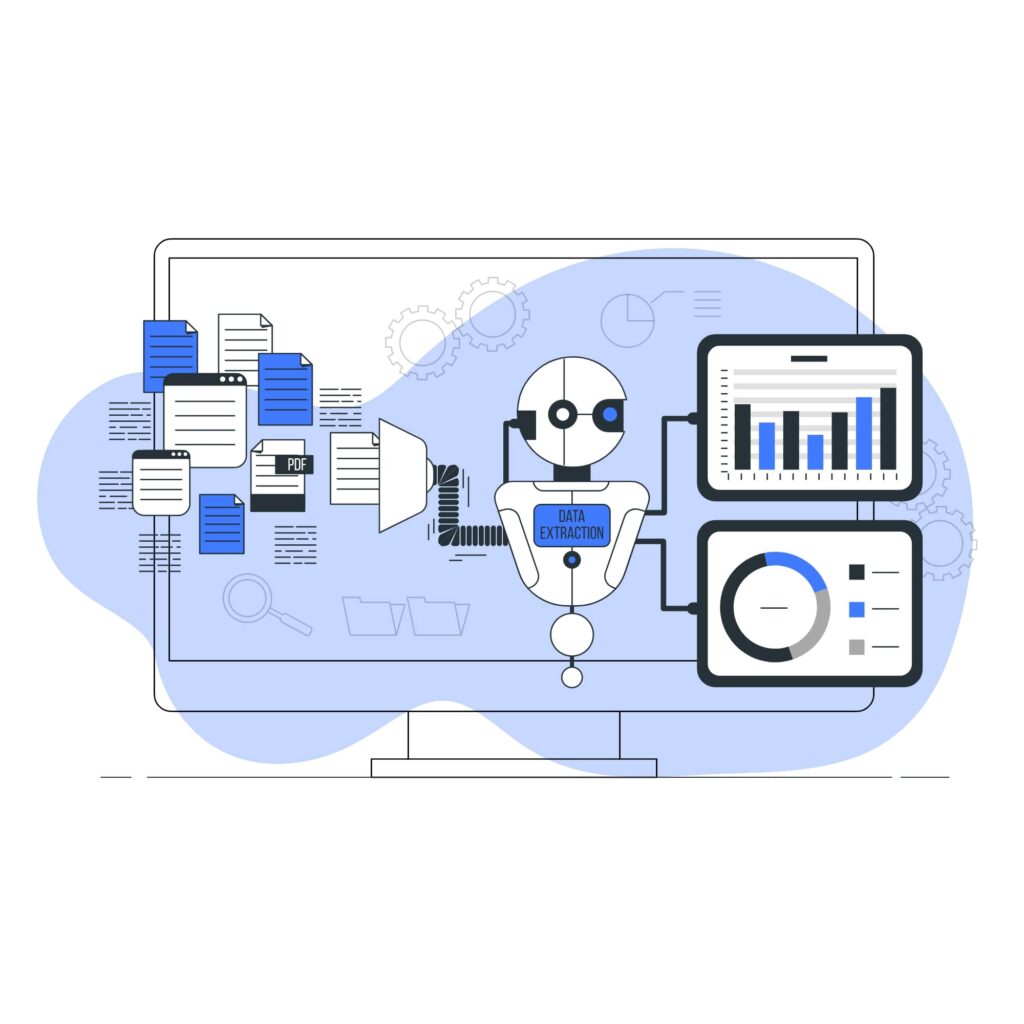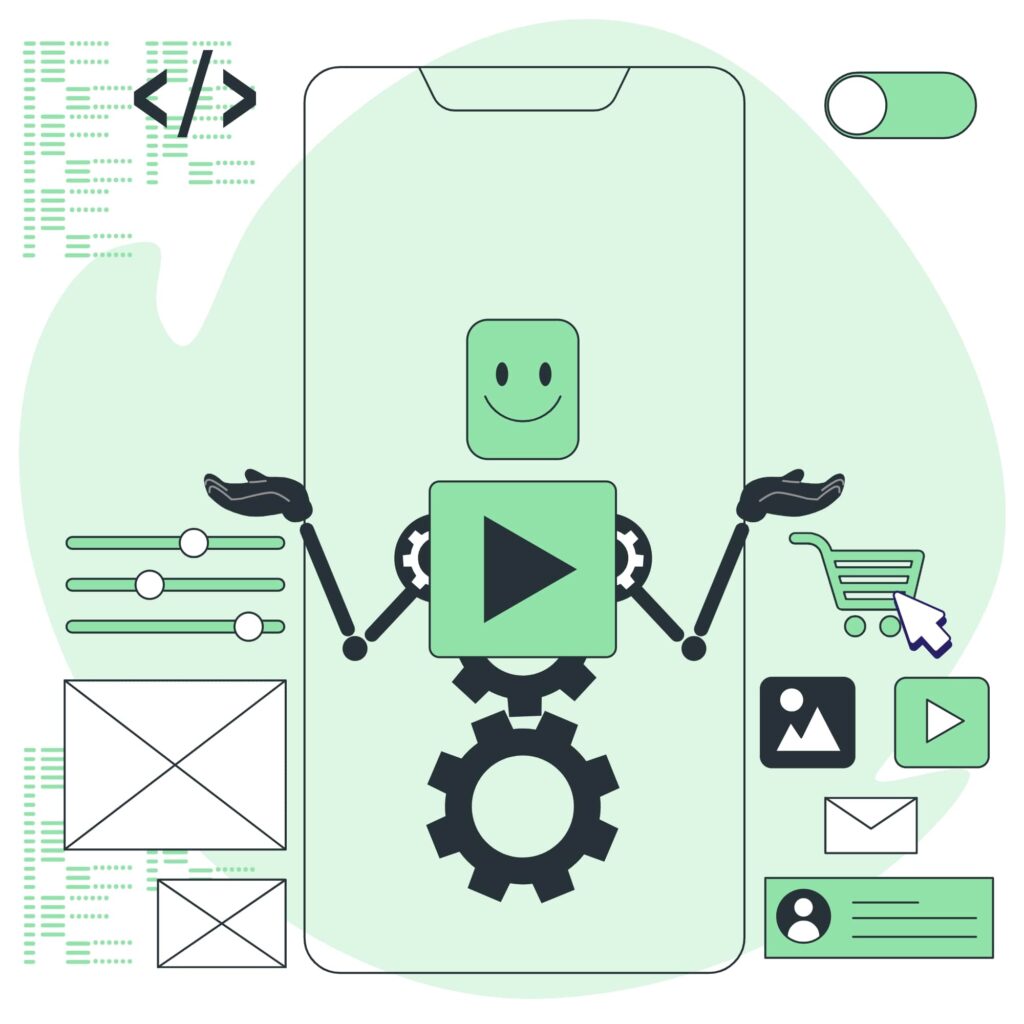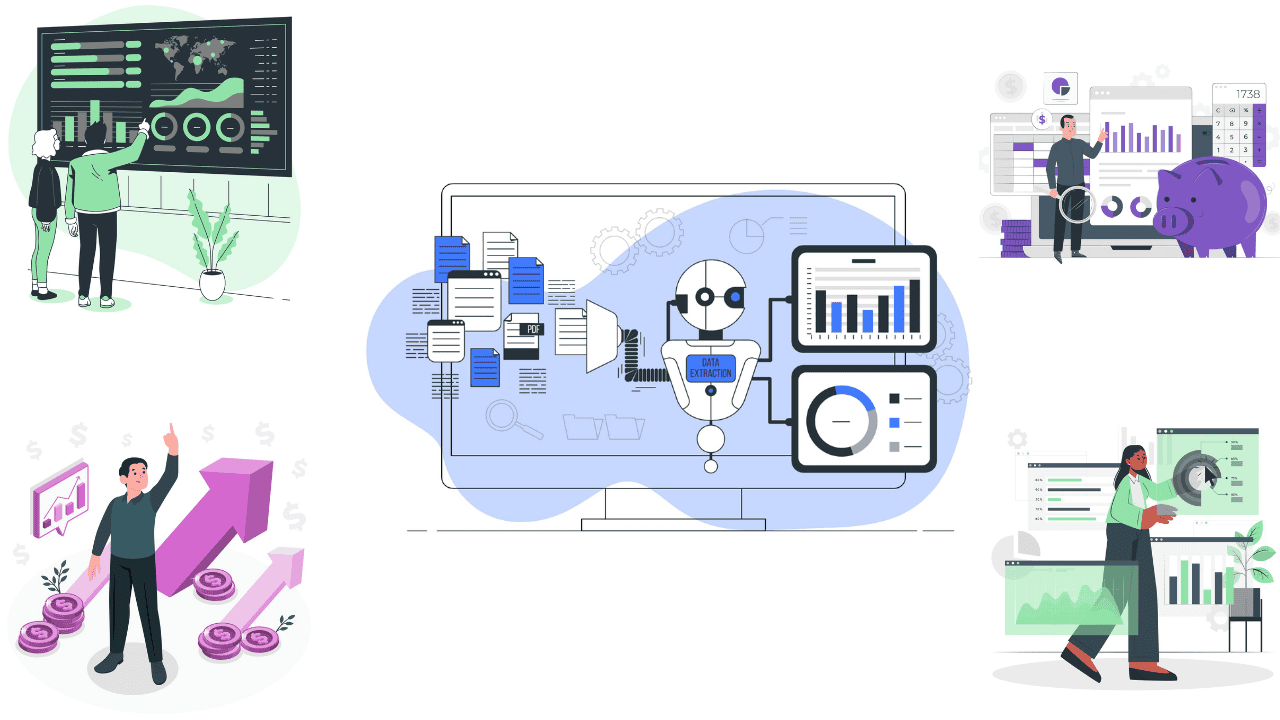Discover The Role of AI in Finance and its potential to predict market trends. Discover key applications, benefits, and challenges of AI in trading and risk management. Can machines forecast future market movements?
Artificial intelligence (AI) is a disruptive factor in many businesses in the era of digital transformation. The financial sector is one where its effects have been very noticeable.
AI is changing the financial scene in several ways, including algorithmic trading and fraud detection. Can machines, however, make precise market predictions?

This article explores artificial intelligence’s role in finance, its capacity to predict market movements and its ramifications for both institutions and investors.
Artificial intelligence encompasses a range of technologies that enable machines to perform tasks that typically require human intelligence.
This includes machine learning, natural language processing, and data analytics. In finance, AI is leveraged for various applications, from algorithmic trading to risk assessment and customer service automation.
“The future of finance lies in the hands of those who can harness the power of AI.” – Financial Analyst
The Role of AI in Finance:
Because the financial industry depends so heavily on data and analytics, artificial intelligence has found a home there.
Every day, financial markets produce enormous amounts of data, such as price changes, trade volumes, economic indicators, and emotions on social media.

It is practically difficult to process this data manually, but AI is very good at finding trends, drawing conclusions, and coming to data-driven judgments.
Key Applications of AI in Finance:
1. Algorithmic Trading: Algorithmic trading makes use of AI algorithms to carry out trades according to preset standards.
These algorithms are simply faster and more efficient than people at analyzing market circumstances, spotting trends, and placing trades.
2. Risk Management: AI models can assess risks by analyzing historical data and predicting potential losses.
Financial institutions might improve their readiness for market swings by modeling different scenarios.
3. Fraud Detection: Artificial intelligence (AI) systems are skilled at spotting trends that can point to fraud.
Real-time transaction monitoring allows these systems to identify anomalous activity, which lowers losses and improves security.
4. Customer Service: AI-powered chatbots and virtual assistants offer consumers real-time assistance by responding to their questions and completing transactions.
This lowers operating expenses while simultaneously increasing consumer happiness.
5. Portfolio Management: Robo-advisors automatically build and manage investment portfolios by using artificial intelligence (AI) to assess their clients’ financial circumstances and objectives.
This opens up financial advice to a wider audience and democratizes access to it.
How AI Predicts the Market:
AI uses a combination of machine learning (ML), natural language processing (NLP), and neural networks to analyze market data and predict trends.

Here’s how these technologies work together:
1. Data Collection and Preprocessing:
- AI gathers data from various sources, including stock prices, news articles, and social media.
- It cleanses the data to remove noise and ensure accuracy.
2. Pattern Recognition:
- Machine learning algorithms identify patterns that might signal future market movements.
- Neural networks mimic the human brain, recognizing complex relationships in the data.
3. Sentiment Analysis
- NLP analyzes text data, such as news headlines and tweets, to gauge market sentiment.
- Positive or negative sentiment can indicate bullish or bearish market trends.
4. Predictive Modeling
- AI develops models to predict price movements, volatility, and market trends.
- These models are continuously refined based on new data.
Success Stories: AI in Financial Markets
Despite challenges, there are notable success stories where AI has delivered remarkable results:

Case Study 1: Renaissance Technologies
Renaissance Technologies, a quantitative hedge fund, is known for its use of AI and mathematical models to drive trading decisions.
The firm’s Medallion Fund has consistently outperformed the market, largely due to its sophisticated algorithms that analyze patterns in vast datasets.
Case Study 2: JPMorgan Chase
JPMorgan Chase has implemented AI to enhance its trading strategies and risk management processes.
Their AI-powered systems analyze market trends in real-time, allowing traders to make informed decisions swiftly.
The bank has reported significant cost savings and improved efficiency as a result.
Can AI Predict Market Movements Accurately?
The short answer is: to an extent. AI has demonstrated impressive capabilities in identifying short-term trends and executing trades.

In the world of finance, those who can predict the future will always have an edge.” – Market Strategist
However, predicting market movements is inherently challenging due to the following factors:
1. Market Volatility
- Financial markets are influenced by unpredictable events, such as geopolitical tensions and natural disasters.
- AI models can struggle with outlier events that deviate from historical patterns.
2. Human Behavior
- Markets are driven by human emotions, such as fear and greed, which are difficult to quantify.
- While AI can analyze sentiment, it may not fully capture irrational behavior.
3. Data Limitations
- AI models rely on the quality and quantity of data. Incomplete or biased data can lead to inaccurate predictions.
4. Regulatory and Ethical Concerns
- The use of AI in trading raises questions about market fairness and transparency.
- Regulatory frameworks are still catching up with the rapid pace of AI adoption.
Limitations of AI Predictions:
Despite the advancements in AI, predicting the market is fraught with challenges. Financial markets are influenced by a multitude of factors, many of which are unpredictable.

1. The Complexity of Market Dynamics
Markets are not purely rational; they are affected by human emotions, geopolitical events, and economic policies. AI may struggle to account for these variables, leading to inaccuracies in predictions.
2. Overfitting and Bias
Overfitting is the term for when AI models become overly specialized. As a result, the model does well on old data but poorly on fresh, untested data.
Biased projections can also result from biased data, which can be harmful to the financial industry.
3. The Black Swan Events
Black Swan events, which are unpredictable events with enormous ramifications, present a big problem for AI.
These occurrences can make predictive models useless because they are frequently outside the scope of previous data.
The Future of AI in Finance:
The potential of AI in finance is vast, but its future hinges on balancing innovation with ethical and regulatory considerations.

Key trends to watch include:
- Integration with Blockchain: Combining AI with blockchain technology could enhance transparency and security.
- Enhanced Personalization: AI-driven financial products tailored to individual needs.
- Improved Risk Assessment: Advanced AI models provide more accurate risk predictions.
- Collaboration with Humans: AI augmenting human decision-making rather than replacing it.
Conclusion On The Role of AI in Finance:
The integration of AI into finance is a double-edged sword. While machines have the potential to predict market trends with remarkable accuracy, they are not infallible. As we explore the role of AI in finance, it is essential to recognize both its capabilities and its limitations.
In the quest for market predictions, AI offers powerful tools that can enhance decision-making and improve efficiency. However, the unpredictable nature of financial markets means that human insight will always play a vital role.
As we look to the future, the question remains: Can machines truly predict the market? The answer may lie in the balance between human intuition and machine learning.
Other Interesting Posts To Read:
The 10 Commandments of Long-Term Investing Success
10 Smart Investment Strategies for First-Time Investors
10 Stoic Habits That Can Help & Guide You Toward Financial Independence 🏦
10 Financial Freedom Lessons Men Learn Too Late In Life
5 Smart Budgeting Hacks to Save Big in 2025


